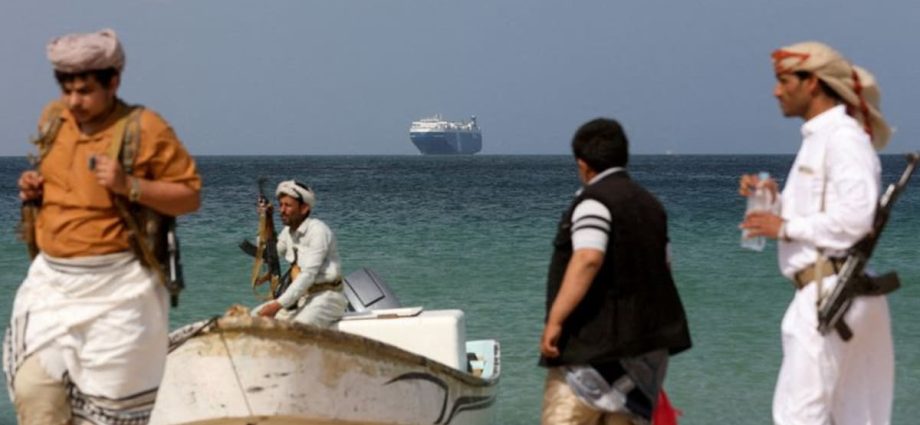
Moreover, most recently a grave new threat has emerged – that of a semi-submersible sea-based drone. These are particularly dangerous as they are very hard to see and destroy, and designed to hit its target at the waterline, its most vulnerable point.
Should such a drone strike a large container ship or oil or gas tanker, the damage could be catastrophic with ships sunk, crews killed and appalling environmental consequences.
ESCALATION IS A POOR ALTERNATIVE
Warship numbers and the schedules of individual shipping companies will not allow regular convoying for protection. So, Operation Prosperity Guardian will most likely be conducted by means of carefully chosen and patrolled shipping routes, with concentrations of naval forces in areas where the threat is considered to be at its highest.
Although this is a complex, demanding and expensive task, escalating the response may be a dangerous alternative.
With US and UK having launched first strikes against targets linked to the Houthis, any retaliatory action could endanger the precarious ceasefire in the Yemeni civil war and runs the risk of widening still further the conflict already engulfing part of the region.
So both by defending the trading system on which the whole world depends and trying to limit the dangers of an even greater war in the area, Operation Prosperity Guardian is an important exercise in the defence of global peace and prosperity.
Small states like Singapore can do their part too. As a small island state that depends on the global maritime system for its security and survival, Singapore must do what it can to support and uphold the multilateral rules-based system.
Geoffrey Till is Professor and Adviser to the Maritime Security Programme and Jane Chan is Senior Fellow and Coordinator of the Maritime Security Programme, at the S Rajaratnam School of International Studies (RSIS), Nanyang Technological University (NTU), Singapore.

